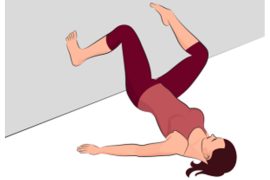Walking is a popular and effective exercise for weight loss, and many individuals debate whether it is more beneficial to walk on an empty stomach or after meals. Each approach has its own set of advantages and drawbacks that can influence weight loss outcomes. Below is a detailed summary comparing empty stomach walks and post-meal walks in terms of their effectiveness for weight loss.
Empty Stomach Walk
Advantages:
- Increased Fat Oxidation: Walking in a fasted state, particularly in the morning, may enhance fat oxidation. With depleted glycogen stores, the body tends to rely more on fat as an energy source.
- Metabolic Adaptations: Some research indicates that fasted exercise may lead to better metabolic adaptations over time, potentially facilitating greater fat loss.
- Convenience and Time Efficiency: Walking on an empty stomach can be easier to incorporate into a daily routine, as many find it simpler to fit in morning exercise before breakfast.
Disadvantages:
- Reduced Exercise Performance: Exercising in a fasted state can result in decreased energy levels, which may lead to a less intense workout and lower overall calorie burn.
- Potential Muscle Loss: For individuals engaging in higher-intensity workouts, fasted exercise may not provide adequate energy, potentially leading to muscle loss if done consistently.
Post-Meal Walk
Advantages:
- Enhanced Digestion: Walking after meals can aid digestion, regulate blood sugar levels, and reduce the risk of post-meal spikes, promoting better overall metabolic health.
- Increased Exercise Performance: Having energy stores replenished after eating can lead to a more intense and longer walk, which may help in burning more calories.
- Caloric Burn: Walking after meals helps to utilize the calories consumed, contributing to a calorie deficit essential for weight loss.
Disadvantages:
- Timing and Convenience Issues: It may be challenging for some to find time to walk right after meals, especially during busy days or if feeling overly full.
- Gastrointestinal Discomfort: Engaging in vigorous walking immediately after eating can lead to discomfort for some individuals.
Effectiveness for Weight Loss
The effectiveness of empty stomach versus post-meal walks for weight loss can vary based on individual preferences, lifestyles, and physiological responses. Here are key considerations:
- Consistency is Key: Regardless of whether individuals choose to walk in a fasted state or after meals, maintaining a regular walking routine is the most crucial factor in achieving weight loss.
- Personal Preference: Some people might feel more energized and motivated to walk on an empty stomach, while others may prefer the boost they receive from walking after eating.
- Goals and Lifestyle: For those aiming to enhance fat oxidation and metabolic adaptations, empty stomach walks may be beneficial. Conversely, individuals focused on digestion and maintaining energy levels may find post-meal walks more suitable.
Both empty stomach and post-meal walks offer unique benefits and drawbacks for weight loss. The best approach depends on personal preferences, lifestyle factors, and individual responses to each walking method. Incorporating both types of walks into a routine could provide balanced benefits, supporting weight loss and overall health effectively. The key is to choose a walking strategy that fits well into one’s daily life, promoting consistency and enjoyment in the exercise regimen.
Disclaimer:
The information contained in this article is for educational and informational purposes only and is not intended as a health advice. We would ask you to consult a qualified professional or medical expert to gain additional knowledge before you choose to consume any product or perform any exercise.







